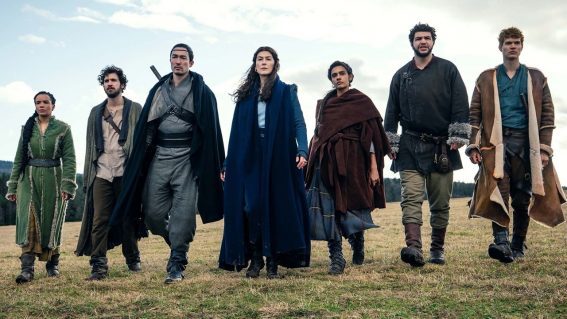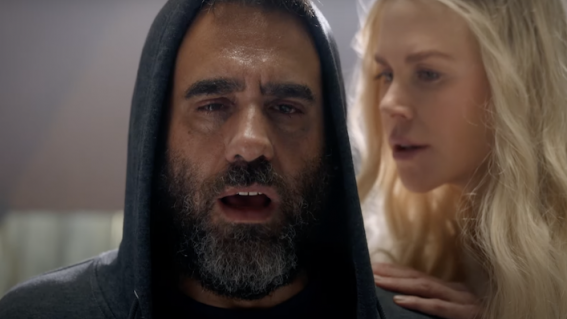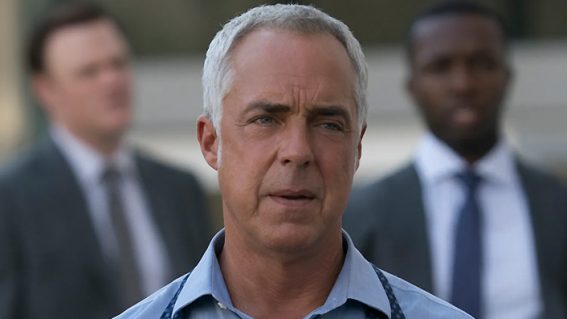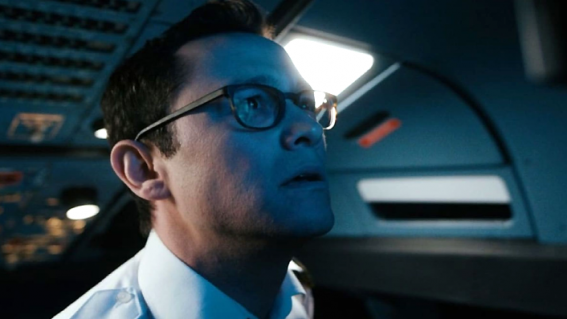The future is blandly exhausting in sci-fi action pic The Tomorrow War
Chris Pratt goes to war with aliens, ho-hum action scenes and stinkerific dialogue.
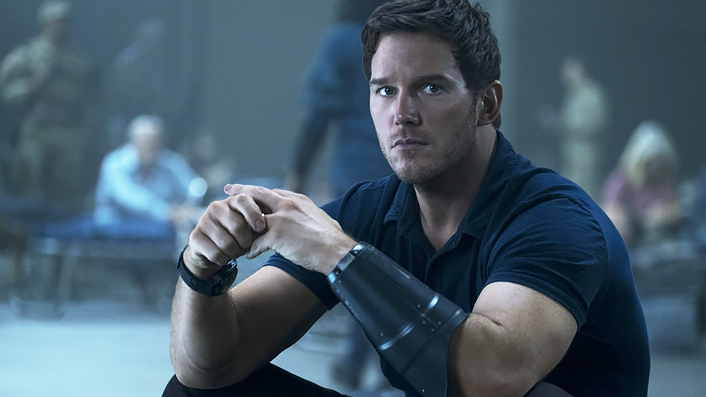
Chris Pratt goes to war to save humankind but rubs up against ho-hum action scenes and stinkerific dialogue in Prime Video‘s action-sci-fi with a time travel twist. Here’s critic Luke Buckmaster’s review.
Chris Pratt looks rather perplexed in the opening shot of The Tomorrow War, which captures his buff science teacher protagonist falling from great heights in an apocalyptic-looking skyline tinged in the glow of smoke and fire. The questions “where am I” and “when am I” are whizzing through his mind, and possibly also: “why didn’t they tell me to bring my bathers?”
See also:
* Best new movies and shows on Prime Video
* All new streaming movies & series
A moment later Dan (Pratt) and other conscripts recruited to fight in a war against aliens—requiring them to be teleported into the year 2051—land ka-plonk in a swimming pool on top of an apartment building upon their arrival. Here they are, doing the right thing—fighting to defend human existence, in a “tomorrow” war that hasn’t happened yet—only to find themselves unnecessarily wet. They emerge from the pool groaning, coughing and generally regretting getting out of bed.
Director Chris McKay bungs an ellipsis onto the end of this scene, jumping back in time 28 years for an onerously long and padded out first act. The most amusing moment occurs when a soccer match is interrupted by a burst of phosphorescent pinky-blue light that magically appears on the field, out of which heavily armed people from the future emerge. Like Bane demonstrated in The Dark Knight Rises, interrupting a sports event is a great way to get people paying attention.
A mysterious woman leading the group begins her speech confusingly, saying “we are you.” The rest is more straightforward, as she explains that in the future humans are fighting a war and “our enemy is not human.” Also, importantly, “we are losing.” Future humans need help, you see, and more to the point they need numbers, lest our species get wiped out by alien vermin and go the way of the dodo. The people of the future’s call to arms is accompanied by an uninspiring message that humans are almost certainly doomed anyway.
Initially this leads, somewhat accidentally, to a commentary on the futility of war—how in the roar and smoke of the battlefield even winners are losers. Dan’s students ask him what the point is, given they’ve “seen the projections” and “aliens kill us all.” Fair question. Dan’s response confirms this classroom sequence as a metaphor about the climate crisis and associated feelings of futility: “if it’s one thing the world needs right now, it’s scientists.”
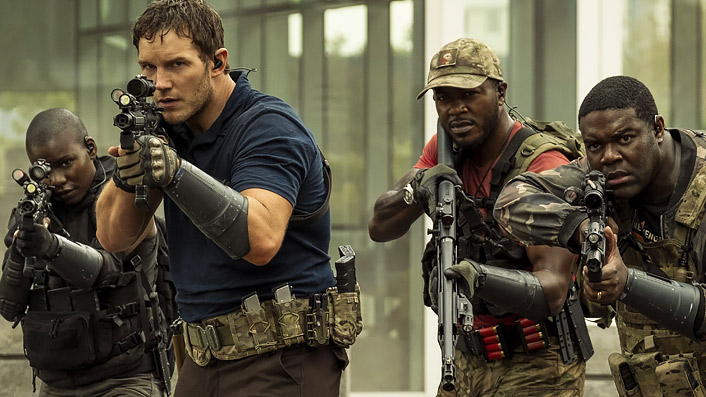
What he really means is more buff scientists, like him, buoyed by one of those narratives that uses great disaster as an opportunity to flatter the hero and his family. Dan’s estranged father James (J.K. Simmons, doing his cranky thing) is part of the solution against the aliens, as is Dan’s grown-up (in the future) scientist daughter Emma (Betty Gilpin).
As is of course John himself, a humble man handed stinkerific lines such as “I’m not a hero, I’m just trying to save my daughter.” And—worse—“my best future, as it turns out, was always right in front of me.”
McKay keeps an ace up his sleeve in the appearance of the aliens. A surprise in fact that is no surprise at all—given they look like an amalgamation of previous movie aliens, with long spindly legs, rat-like faces, insect-esque movement and the demeanor of feral cats, very very feral cats, which make the sort of monstrous squealing noises available pre-recorded in the sound effects library. Action scenes showing Dan and other recruits going to war against them, all guns a-blazing, are blandly directed and infused with boilerplate dialogue such as “get the hell out of there!” and “we’re on a mission!”.
For a similarly themed sci-fi featuring belligerent ETs and a time travel twist, consult the excellent Edge of Tomorrow—a satire about the infallibility of the Hollywood hero, also featuring Tom Cruise kicking alien arse. Or (sans time travel) Paul Verhoeven’s future-set Starship Troopers, a hellzapoppin spectacle with something to say about propaganda, American imperialism and “fascists who aren’t aware of their fascism.”
The most cut-through message from The Tomorrow War, on the other hand, is that the world needs more teachers who can who can put down the textbook and kick arse, fighting the existential threat du jour. And, if you’ve got something very important to say, interrupt a sports game.
A snappy, silly spectacle may have hit the spot—but the exhausting nitwittery in this very exhausting movie lasts for 138 minutes, spanning scenes dripping with maudlin sentiment much more terrifying than the hissing extra-terrestrials.












